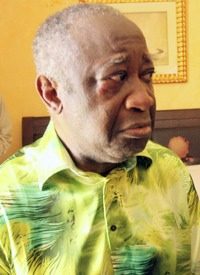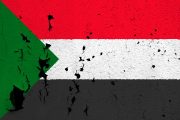
But according to analysts, the chaos in the West African nation is far from over. Ivorians have now suffered for five months as the rival leaders fought a bloody battle over the presidency. And the roots of the conflict go deep: In 2002, a civil war left the country split between Muslims in the North and Christians to the South.
The most recent outbreak of bloodshed was sparked by a contested election held in November. The vote originally indicated that Ouattara had defeated Gbagbo. After being confronted with evidence of vote fraud and ballot stuffing; however, the Ivorian Constitutional Council nullified the initial results and declared Gbagbo the winner.
But despite the high court’s ruling, which is supposed to be the final word on national elections, the UN and various foreign governments insisted that Gbagbo step down. When he refused, the international body and the French government sent military forces to support Ouattara’s campaign to oust him by force.
The rebel campaign to unseat Gbagbo unleashed what one senior U.S. lawmaker dubbed a “reign of terror” supported by the French government. Islamic forces loyal to Ouattara, for example, slaughtered a thousand fleeing Christian civilians recently in Duékoué, hacking many of them to death with machetes. They also burned at least 10 villages, probably more.
And as they marched for the capital, the UN-backed rebel troops reportedly murdered, raped, and abducted thousands more. Around one million people have been displaced, according to estimates. And about 100,000 have fled the country so far.
Gbagbo, a socialist-leaning Catholic who has ruled the former French colony for a decade, was finally captured with his wife and son after the Ivorian government’s forces were decimated by the international military campaign. The family was reportedly holed up in a bunker at the presidential palace in the capital.
Witnesses reported that the first thing Gbagbo said as opposition forces took him into custody was "Don’t kill me." He is currently being held by Ouattara’s regime and UN police. And he could soon face an international tribunal, according to news reports.
"After more than four months of post-electoral crisis, marked by so many human lives lost, we are finally at the dawn of a new era of hope," Ouattara claimed after assuming power, saying the former President’s rights would be respected as a domestic investigation proceeds. Minimizing the documented atrocities perpetrated by his own forces, he accused Gbagbo supporters of committing crimes, too.
Ouattara, the U.S.-educated Muslim immigrant whose support comes from the largely Islamic Northern part of the country, has worked at the International Monetary Fund and the Central Bank of West African States. He is seen by analysts as more friendly to the international elite.
And indeed, Western governments celebrated the news of Ouattara’s violent ascent to the presidency. European Union officials, UN bosses, and the U.S. government all issued statements praising the victory.
“This transition sends a strong signal to dictators and tyrants throughout the region and around the world," claimed U.S. Secretary of State Hillary Clinton after hearing of Gbagbo’s arrest. "They may not disregard the voice of their own people in free and fair elections, and there will be consequences for those who cling to power,” she added, without mentioning the fact that the country’s supreme court ruled that Gbagbo was in fact the legitimate President. U.S. President Obama ordered Gbagbo to step down earlier this month.
But analysts at the free-market-oriented Daily Bell had a different take on the issue. They noted that the way the conflict was finally resolved illustrated a larger lesson to other leaders: “Respect the UN and its mandate. And listen to your wiser, Western elders.”
The analysis also noted that Gbagbo utilized the Ivory Coast’s appropriate legal mechanism to challenge the alleged vote fraud — and that even if the court was wrong in declaring him the winner, a proper inquiry should have started there. Instead, the UN simply decided to depose and imprison Gbagbo without regard to the country’s constitution.
But following decades of armed conflicts and internal strife, the turmoil in Ivory Coast will not be undone any time soon. UN-backed “President” Ouattara has vowed to set up a “truth and reconciliation” committee. He also publicly urged both sides to end the violence and stop retaliatory attacks.
How sincere the overtures are, however, is the subject of debate. Whether Ouattara will truly investigate and punish his forces’ atrocities is also unclear.
But as numerous analyses have pointed out, the problems in Ivory Coast go much deeper than a troubled presidential election. Each leader represents a side in a decades-old conflict between warring factions. And those divisions will not be healed simply because the UN removed a Christian ruler by force in favor of a Muslim one.
Some commentators have suggested splitting the nation in two to avert an even bloodier civil war. Others have naively proposed disarming the whole population, as if every machete and deadly instrument in the nation could somehow be rounded up and destroyed. But no matter what happens, it appears that the “international community” — and especially the former colonial rulers — will be involved in the Ivory Coast for a long time to come.
Photo of Laurent Gbagbo: AP Images



